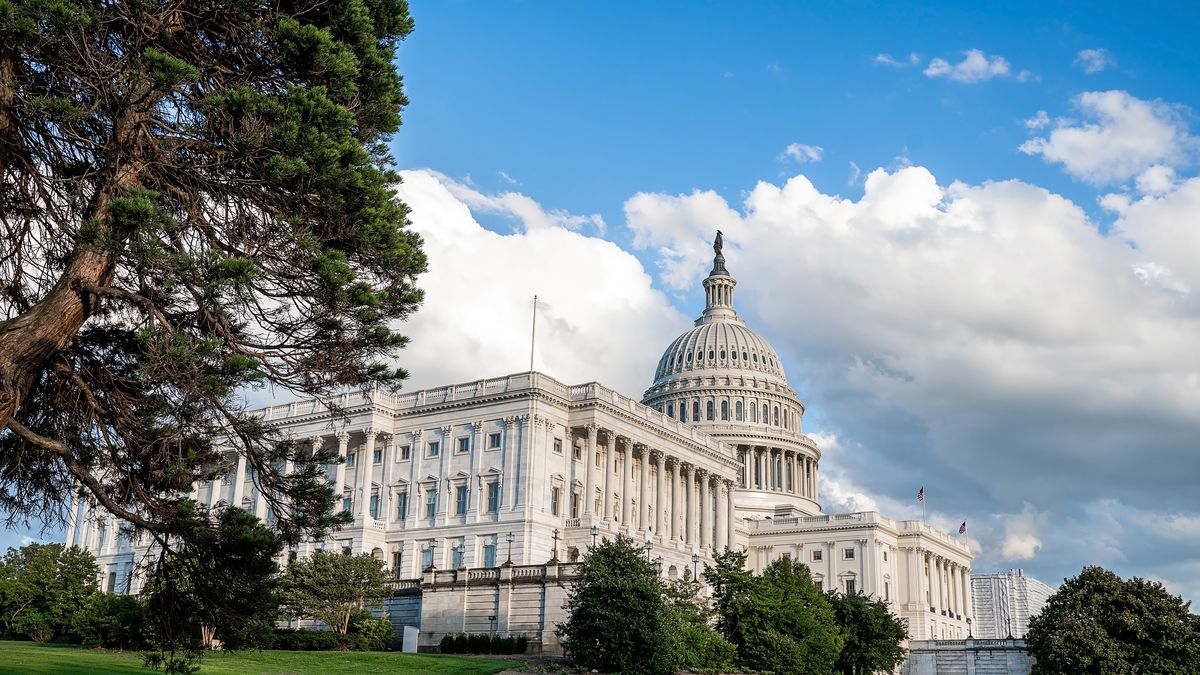He United States Senate will try to approve on Thursday a stopgap measure to maintain federal government funding until early March, avoiding a partial shutdown that would begin in less than two days if Congress does not act.
The Democratic-majority Senate and Republican-controlled House are far behind in meeting their basic obligation to fund the administration for the fiscal year that began Oct. 1, and lawmakers are struggling to maintain the Government operating until early March, to have more time to pass a bill for the entire year.
The Senate’s top Democrat, Chuck Schumer, and his Republican counterpart in the House of Representatives, Mike Johnson, agreed earlier this month on a discretionary spending level of $1.59 trillion for the year ending September 30. But in a sign of how bitterly divided Congress is, the two parties now disagree on that figure, with Democrats saying the actual amount agreed upon is $1.66 trillion.
“I think we’re on track to get it done,” Democratic Senator Raphael Warnock told Reuters, referring to the prospects of passing the temporary spending bill on Thursday or Friday.
The intense fight between House Republicans, who are seeking deep spending cuts, and Democrats comes amid a rapidly rising $34.4 trillion national debt and has raised concerns, in part due to the high interest payments now borne by the Treasury Department.
white-house-usa.JPG
This third interim funding bill, known as a “continuing resolution” or “CR,” would simply extend last fiscal year’s spending levels through two deadlines, March 1 and March 8, to complete the action. spending by various government agencies.
Democratic Rep. Josh Gottheimer outlined the impact of possible government agency closures, including a further delay in care for veterans applying for disability benefits, a possible suspension of aircraft safety inspections and a freeze on federal government loans. Department of Agriculture and other services to rural communities. Another, more distant example is that more than a million military personnel would temporarily stop collecting their salaries.
Sen. Susan Collins, the ranking Republican on the Appropriations Committee, said Wednesday that she was optimistic that a government shutdown will be avoided.
“I think we’ll get back to CR tomorrow,” Collins said. But he expressed frustration at how long it is taking to divide up money for the 12 bills that provide the budget for the entire year, adding: “This has been dragging on for a long time and I really don’t know why.”
Once the Senate approves the CR, the measure will move to the House of Representatives, where Johnson could face opposition from hard-line members of his party, who oppose these types of stopgap funding projects without major cuts. bills.
That discontent led to the fall of Johnson’s predecessor, Kevin McCarthy, last fall.
(Reporting by Richard Cowan, Reuters agency, in Washington; Edited in Spanish by Ricardo Figueroa)
Source: Ambito




